Integrating Smart Equipment into Your Microbrewery
With the growing demand for craft beer, microbreweries are increasingly turning to smart equipment to improve efficiency, maintain quality, and meet customer expectations. Smart brewing technology leverages automation, IoT (Internet of Things), sensors, and real-time monitoring systems to optimize brewing processes. In this article, we will explore how integrating smart equipment can help your microbrewery stay competitive while delivering consistent, high-quality beer.
Real-Time Monitoring for Quality Control
One of the biggest advantages of smart equipment in microbreweries is the ability to monitor real-time data, ensuring that every stage of the brewing process remains under optimal conditions. Sensors placed in fermentation tanks and mash tuns continuously track critical metrics such as temperature, pH, gravity, and oxygen levels. These devices allow brewers to receive second-by-second updates, reducing the chance of production issues. According to a report by IoT Analytics, the use of smart sensors in food and beverage production is expected to grow by 25% annually, highlighting their increasing role in modern brewing.
For example, the Grainfather G70 brewing system integrates temperature sensors that maintain mash temperatures within ±1°F of the desired setpoint. This precise control ensures optimal enzyme activity during mashing, leading to consistent sugar extraction and better fermentation outcomes. Without real-time monitoring, even a small deviation in temperature could impact flavor consistency and efficiency, increasing the risk of off-flavors or incomplete fermentation.
Additionally, smart fermentation controllers, such as the BrewMonitor System, provide continuous measurements of pH, CO2 levels, and dissolved oxygen throughout fermentation. The BrewMonitor system alerts brewers the moment adjustments are needed, preventing small errors from becoming costly problems. Breweries using BrewMonitor report 15% fewer batch rejections by detecting potential issues early. By automating quality control, these systems also reduce human error, which is responsible for 20% of production faults in traditional brewing setups.
Real-time monitoring not only ensures consistent beer quality but also helps optimize the overall brewing process. Brewers can analyze historical data from each batch to fine-tune recipes, achieving greater consistency across multiple production cycles. The combination of precision control and early issue detection makes smart monitoring systems an essential tool for microbreweries looking to deliver high-quality beer with every batch.
Automating Brewing Processes for Efficiency
Smart brewing equipment automates many of the repetitive processes involved in brewing, such as mashing, boiling, cooling, and fermentation, allowing brewers to focus more on recipe development and innovation. This shift not only saves time but also ensures consistency by minimizing human error. For example, the Blichmann BrewCommander Controller automates temperature adjustments during the brewing process, maintaining precise heat control throughout each stage. This system reduces active monitoring time by up to 30%, freeing up brewers to experiment with new ingredients and flavors. According to a study by the Brewers Association, breweries that adopt automation technologies report production efficiency increases of up to 20%, thanks to more streamlined workflows and fewer process interruptions.
Automation also reduces the physical workload by managing labor-intensive tasks, such as transferring wort between tanks, adjusting water levels, or oxygenating during fermentation. This precision ensures that each batch meets exact specifications, reducing variability and improving overall quality. For instance, BrewDog, a well-known craft brewery, automated key parts of their brewing process, including the mash and boil cycles. As a result, they reported a 10% reduction in energy consumption, contributing to both operational savings and environmental sustainability.
Another advantage of smart automation is the ability to scale production without hiring additional staff. Microbreweries that automate their processes can increase output while maintaining product quality, allowing them to grow efficiently. With automated systems handling routine operations, a brewery can produce larger volumes and even run multiple batches simultaneously. For example, breweries using automated wort-transfer systems can reduce transition times between tanks by 20-30%, increasing throughput. Some systems also include automatic cleaning-in-place (CIP) features, reducing cleaning time by 50% compared to manual methods, further increasing production capacity.
Additionally, automation provides brewers with detailed data logs from each batch, offering insights that can be used to refine future processes. Brewers can track variables such as temperature trends, oxygen levels, and fermentation progress, making it easier to fine-tune recipes for consistency. This capability ensures that even as production scales up, the quality of each batch remains consistent with the brewery’s standards.
In summary, automating brewing processes improves efficiency by reducing labor demands, saving energy, and allowing breweries to increase output without sacrificing quality. With smart systems handling repetitive tasks and offering real-time insights, brewers can focus more on creativity and scaling their operations—making automation a key investment for any growing microbrewery.
Remote Access and Control through IoT
Integrating IoT-enabled equipment allows brewers to monitor and control their brewing systems remotely, providing flexibility and greater operational control. Through smartphone apps and web platforms, brewers can make real-time adjustments to critical processes like fermentation temperature, boil time, and oxygenation, no matter where they are. This technology eliminates the need for constant physical presence, ensuring optimal brewing conditions around the clock. For example, the Tilt Hydrometer transmits fermentation data such as gravity readings and temperature updates every 15 minutes directly to a smartphone app, allowing brewers to monitor progress without opening the fermenter—minimizing the risk of contamination.
Remote access is particularly valuable for smaller microbreweries, which may not have staff available 24/7. IoT systems allow them to operate efficiently with fewer employees while still maintaining full control over the brewing process. SmartBrew, a widely adopted IoT brewing platform, has helped users reduce downtime by 25% through remote monitoring and troubleshooting. Brewers can address issues, such as a failing pump or clogged valve, from their phone without having to travel to the site, ensuring production stays on schedule.
In addition to remote monitoring, real-time alerts from IoT systems help prevent costly brewing failures. If a critical component, such as the cooling system, malfunctions, the brewer receives an instant alert. This immediate response capability can prevent the loss of entire batches. For example, by quickly activating backup cooling systems, brewers can save a 500-liter batch worth several thousand dollars. Some IoT-enabled systems also provide predictive alerts, identifying potential equipment failures before they occur, further minimizing downtime.
In summary, IoT-enabled remote access empowers microbreweries to maintain full control over their brewing operations while reducing manual oversight. By providing real-time data, instant alerts, and remote control capabilities, IoT systems help breweries improve efficiency, reduce losses, and enhance operational flexibility. As IoT technology continues to evolve, its role in the brewing industry will become even more indispensable.
Data Analytics for Predictive Maintenance
Another benefit of integrating smart equipment into a microbrewery is the use of data analytics for predictive maintenance. Advanced brewing systems collect data from machinery—such as pumps, valves, and cooling systems—and use it to predict failures before they happen. Predictive maintenance reduces unplanned downtime, which can cost microbreweries $1,000 to $5,000 per day in lost production.
For example, BrauKon’s automated systems track usage and wear data, alerting operators when equipment needs servicing. Breweries using predictive maintenance strategies report a 15% reduction in maintenance costs and a 20% increase in equipment lifespan. By replacing parts proactively, microbreweries can prevent small issues from becoming costly breakdowns, ensuring smooth operations during peak production periods.
Environmental Benefits of Smart Equipment Integration
Smart brewing equipment plays a vital role in helping microbreweries become more sustainable by significantly reducing energy and water consumption. Sustainability is increasingly important in the brewing industry, where water and energy usage represent major operational costs. Smart systems monitor resource consumption in real time, identifying inefficiencies and optimizing usage to reduce waste. For example, breweries that implement automated water management systems can cut water waste by 10-15%, ensuring every gallon used is tracked and optimized for production. Automated heating and cooling systems further improve energy efficiency, maintaining precise temperatures while minimizing excess power use. According to a report by the Brewers Association, breweries using smart energy management systems report 20-30% reductions in energy consumption annually.
An example of this innovation is the Spirax Sarco Brewing System, which uses real-time steam management technology to optimize heat usage. By automatically adjusting steam flow based on real-time demand, the system reduces emissions and energy costs, making production more sustainable. Another leader in sustainable brewing, New Belgium Brewing, has implemented a smart water management system that tracks water usage throughout the brewing process. This system has helped them save 1 million gallons of water annually, reducing both their environmental impact and operational costs.
These smart systems also reduce the brewery's carbon footprint. Automated equipment ensures that processes such as mashing, boiling, and cooling operate at peak efficiency, preventing energy overuse. Additionally, predictive maintenance systems—powered by IoT sensors—identify potential equipment issues before they become major problems, minimizing unplanned downtime and energy waste. This proactive approach to maintenance not only keeps the brewery running smoothly but also extends the life of equipment, reducing the need for frequent replacements.
For microbreweries looking to achieve environmental sustainability without compromising production, integrating smart equipment offers a dual advantage: cost savings and eco-friendly operations. By reducing water usage, optimizing energy consumption, and minimizing emissions, breweries can align their production processes with sustainable practices. In a competitive market where customers increasingly value eco-conscious products, sustainability can also become a selling point.
In summary, smart equipment integration enables breweries to achieve a more sustainable brewing process through improved energy management, water conservation, and reduced waste. As environmental regulations become stricter and resource costs rise, smart systems will continue to play a critical role in helping microbreweries balance profitability with environmental responsibility.
Conclusion: The Future of Microbrewing with Smart Equipment
Integrating smart equipment into your microbrewery offers numerous advantages, from real-time monitoring and automation to predictive maintenance and environmental sustainability. With tools like IoT platforms, remote control systems, and data analytics, brewers can produce consistent, high-quality beer with greater efficiency and fewer errors. The upfront investment in smart equipment often pays off through reduced labor costs, fewer production faults, and improved energy management.
In a competitive craft beer market, adopting smart brewing technology can provide a significant edge. Microbreweries that have embraced automation report 15-20% increases in production efficiency and 10-15% reductions in operating costs. As the industry continues to evolve, smart brewing systems will become essential tools for brewers looking to scale operations and maintain high standards. Integrating these technologies ensures that your microbrewery stays ahead of the curve—delivering quality beer from grain to glass with precision and sustainability.
Products
- Beer brewery equipment
- Craft brewing equipment
- Home brewing equipment
- Microbrewery equipment
- Commercial brewing equipment
- Industrial brewery equipment
- Pilot brewing system
- Brewhouse & Mash system
- Fermentation tank
- Bright / Brite tank
- CIP system
- Beer filling machine
- Pasteurizer
- Hop gun
- Yeast propagation equipment
- Beer concentration equipment
- Carlsberg flask
- Reverse osmosis water filtration systems
- Mobile water treatment systems
- Water Purification Equipment
- WFI equipment
- Purified water tank
- CIP system
- Multi effect water distiller
- Pure steam generator
- WFI tank
- Solution preparation tank
- Tube heat exchanger
- Storage and distribution system
- Liquid preparation system
- Demineralized water system
- Vapour compressor
News & Exhibitions
- Why Beer Concentration Matters: Unpacking the Standard ABV Range
- Why Every Craft Brewer Needs a Pilot Beer Brewing System
- Top 5 Benefits of Using a Pilot Beer Brewing System for Small Breweries
- Setting Up a Microbrewery? Why Turnkey Equipment Might Be Right for You
- How Nano Brewery Equipment is Changing Experimental Brewing: A Deep Dive into Small-Scale Innovation
- Essential Craft Beer Equipment for Starting Your Brewery
- Integrating Smart Equipment into Your Microbrewery
- From Grain to Glass: Building the Perfect Complete Brewing System for Your Home
TAGS
- turkey brewery equipment
- small beer brewery equipment,mini beer brewery equ
- sovereign stainless steel fermenter
- brewing equipment manufacturers uk,home brewing eq
- home brewing distillation equipment
- Nano brewery equipment, brewing systems manufactur
- craft brewery equipment for sale, craft beer equip
- complete brewery for sale
- beer brewing equipment
- 15 gallon jacketed fermenter
- automatically brew equipment,50L Brewing equipment
- dry hops addition
- mixing tank manufacturers
- hops addition gun
- hop additive gun
- Craft beer making equipment for Malaysia
- pilot brewing system
- Microbrewery machine
- CIP system
- professional Cleaning in place equipment
Newest Products
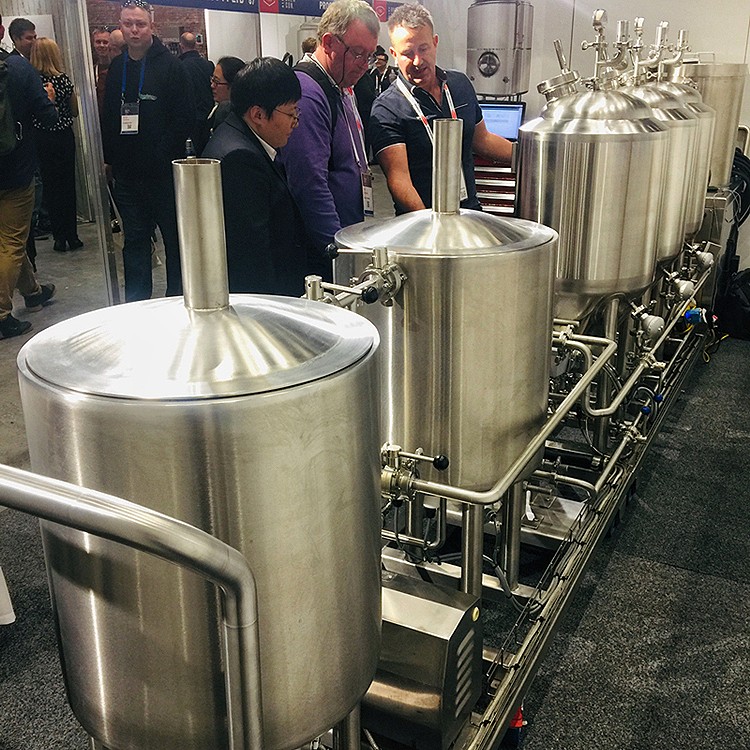
Marketplace home & living lifestyle home brewing d...
The home brewing and distilling market has grown in popularity in recent years, ...
More >>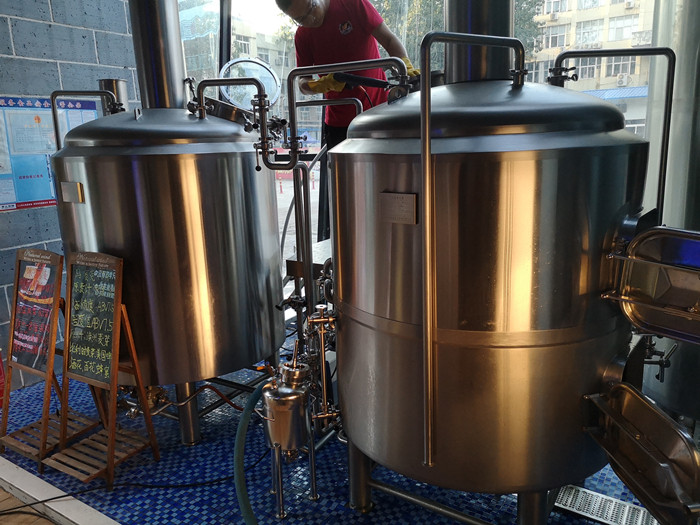
Beer brewhouse and fermentation tanks microbrewery
WEMAC-Main product categories:
Craft Beer equipment,Cider making machine,Beer b...
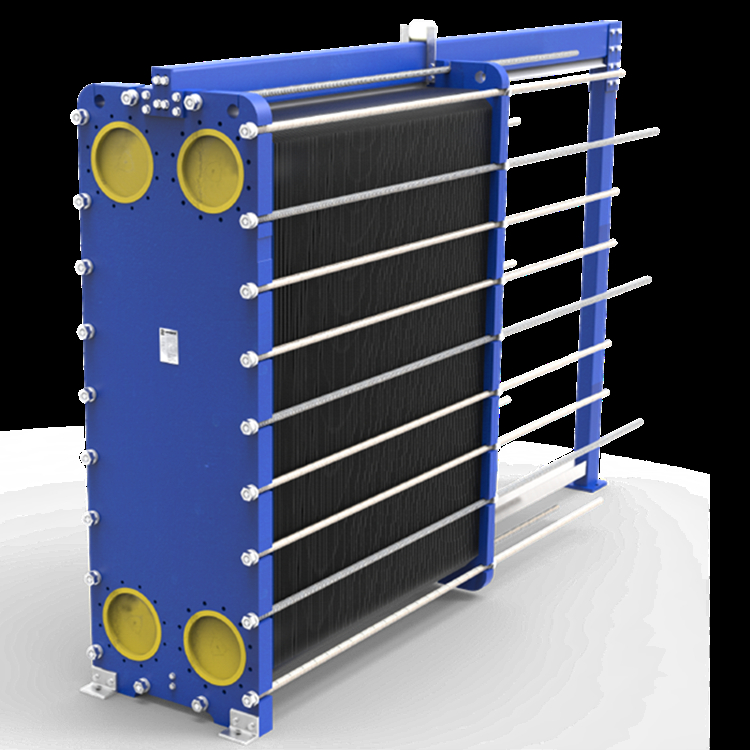
Best plate heat exchanger for beer brewery
The WEMAC plate heat exchanger (PHE) series is extensive, including multiple typ...
More >>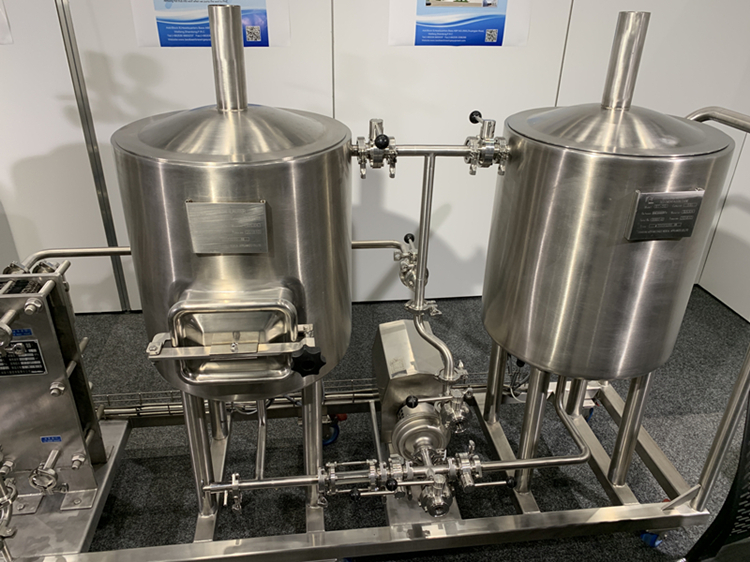
Home beer brew kits brewery equipment
This skid home brewing system is designed for craft brewing amateurs who has bee...
More >>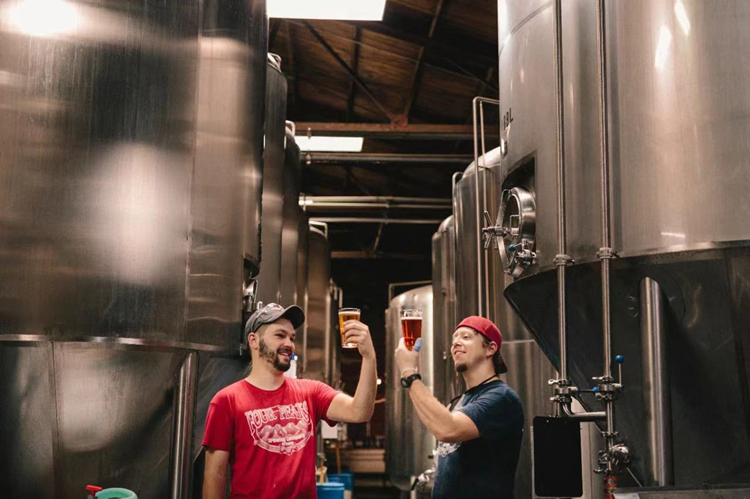
Top quality fermenter and beer bright tank
Brite or Bright Beer Tanks are also known as Beer Conditioning Tanks or Beer Ser...
More >>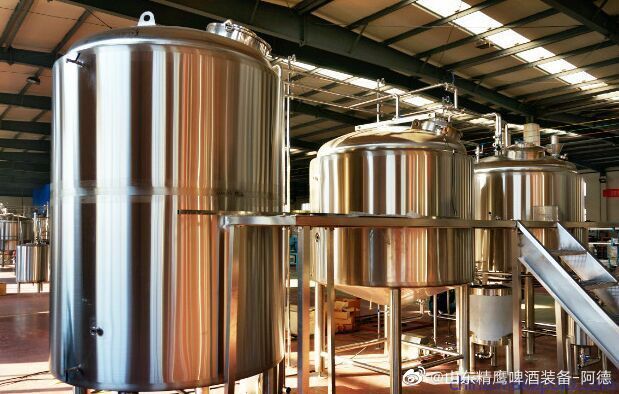
Pro two vessels 5BBL craft brewery in Michigan
Professional beer brewhouse sale well in Michigan state,turnkey brewery services...
More >>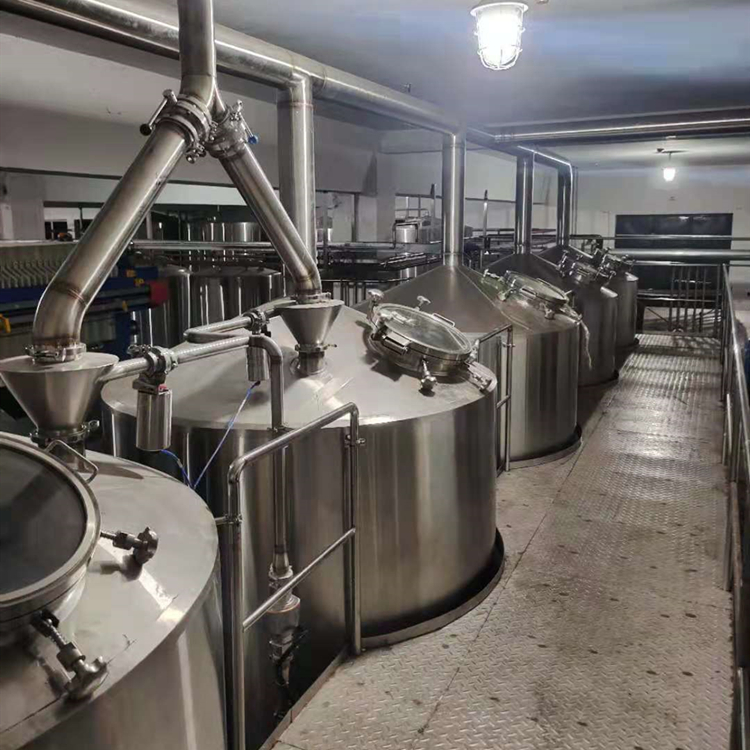
4000L Commercial Beer Brewery Equipment
4000L four vessels craft beer brewing brewery system,gas steam heating,with a be...
More >>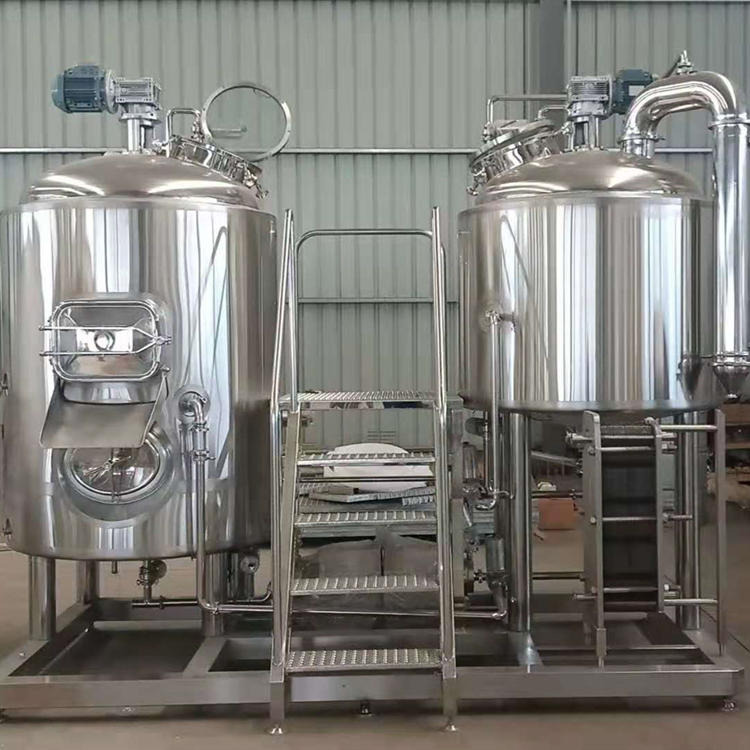
500L Top quality craft beer brewery equipment
Double vessels craft beer brewing brewhouse for sale,mash/kettle tun + lauter/wh...
More >>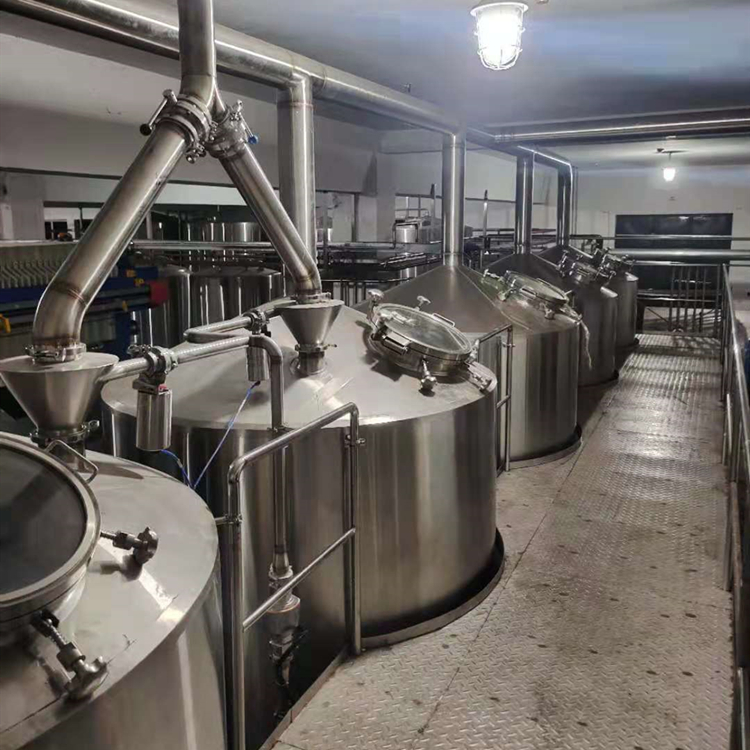
4000L Five vessels turnkey beer brewery
Five vessels craft beer brewhouse system suppliers,Double mash tun+double kettle...
More >>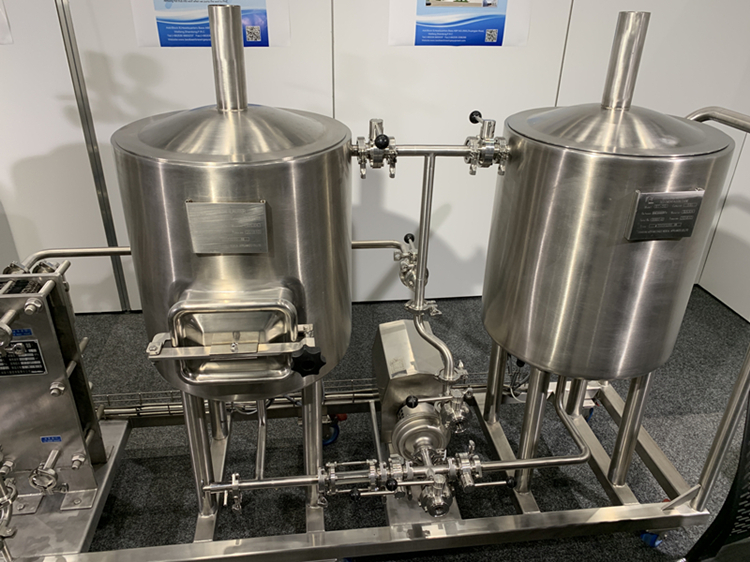
Best 50L home beer microbrewery equipment
Two vessels combination,mash/lauter tun+kettle/whirlpool tun brewery.electric co...
More >>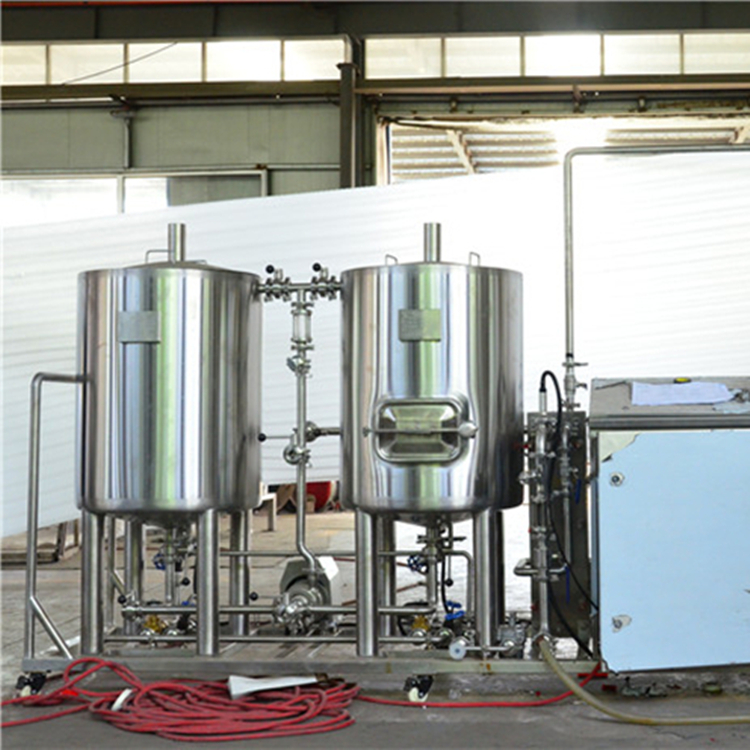
100L beer brewing home microbrewery
Mash/lauter/kettle tun+whirlpool tun,electric coil heating,two stages cooling,pl...
More >>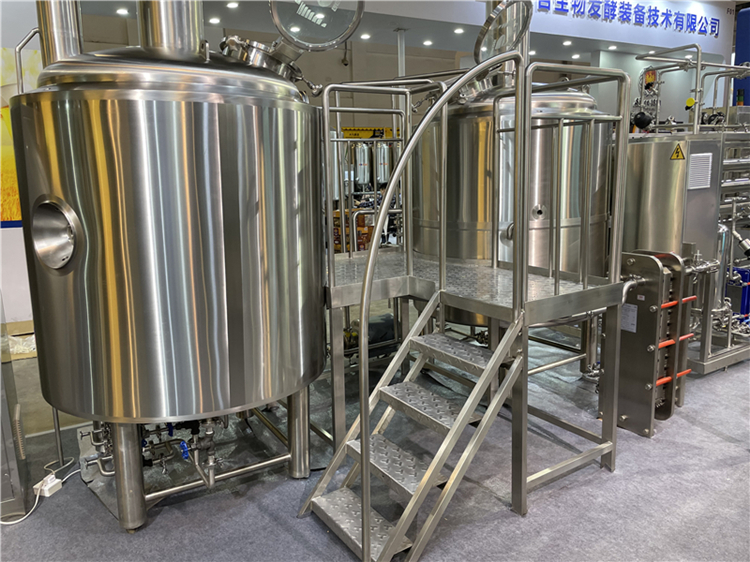
Build me a 1500L beer brewery
mini beer brewery machine from 50L,which is suitable to use in home and family b...
More >>